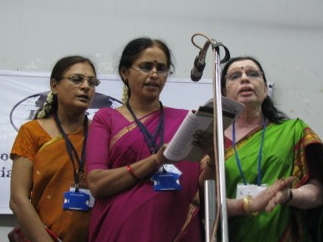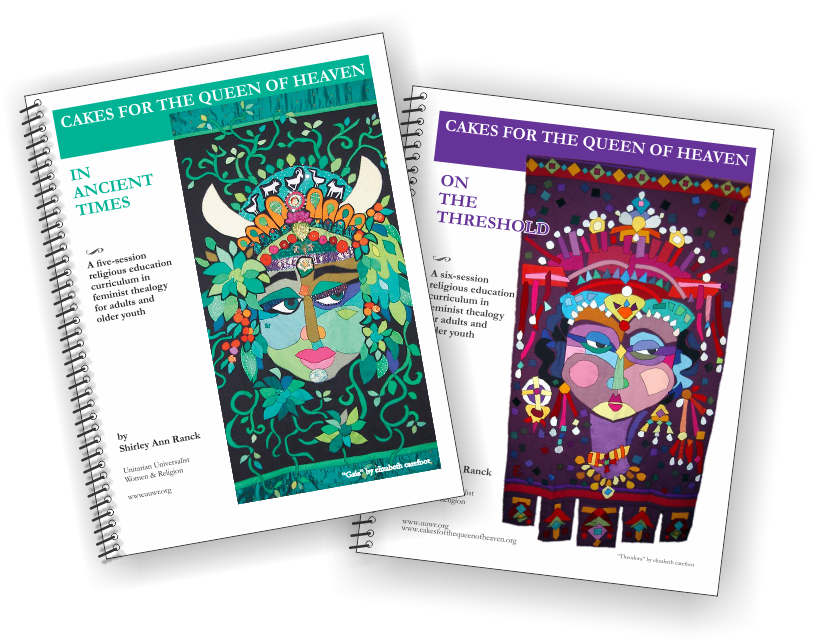 How can I live my life to benefit all? This question is ringing from my heartstrings after returning home from the IALRW conference, the first week of September, in India. Most important for me from that experience were the well thought out, meaningful ideas and memes*. I found I could integrate many of those bright women’s thoughts into my core values. Now, as I savor the brilliance of the full moon, I realize my new insights are like the moon’s light that becomes blocked into darkness intermittently by passing clouds. How the conference was a defining experience will be addressed in future WOMUUNWEB issues as more clarity comes to me.
How can I live my life to benefit all? This question is ringing from my heartstrings after returning home from the IALRW conference, the first week of September, in India. Most important for me from that experience were the well thought out, meaningful ideas and memes*. I found I could integrate many of those bright women’s thoughts into my core values. Now, as I savor the brilliance of the full moon, I realize my new insights are like the moon’s light that becomes blocked into darkness intermittently by passing clouds. How the conference was a defining experience will be addressed in future WOMUUNWEB issues as more clarity comes to me.
Here I will share Dolma’s kernels, seeding my inspiration, since her presentation dovetails with the recent UUA General Assembly’s Statement of Conscience on “Creating Peace.” (Please, see that Statement of Conscience story in the WOMUUNWEB Summer, 2010 issue.)
Mrs. Tsewang Dolma Yokhang, author of ”Presentation of Peace Education – Women’s Role” (the paper I will quote here) lives in Leh, Ladakh, India. Ladakh is in The Himalayas where recent flooding has been so devastating. I’ve been with her at all but one of the IALRW conferences I’ve attended since 1993. She works at the Ladakh Women’s Literacy Center, a long standing project IALRW helps to support.
“Peace means being one with life itself – having no fear or bitterness.” Dolma calls that precious state of being, a “kingdom of freedom.” Since I most value the aspect in the Unitarian Universalist faith tradition of liberation of one’s inner Self (true in other religions, too), this resonates for me. I believe that within each baby born is an inner potential for harmony and doing good. What’s necessary for this original goodness (not original sin) to be released to join Earth’s positive energy is a liberating environment for healthy growth.
Dolma describes peace education as being “directed to the full development of the human personality and to the strengthening of respect for human rights and fundamental freedoms.” With “the process of acquiring the values, the knowledge and developing the attitudes, skills and behaviours to live in harmony with oneself, with others and with the natural environment,” Dolma talks about how a commitment to caring for others comes out of the quality of caring given to the student. This rings true to me as an early childhood teacher.
Under her heading of “Women’s role as peace envoy,” Dolma goes to the matrix of women’s roles as mothers, wives and aunts for their ability to give “health, well being and freshness to teaching enduring human values” and fulfilling a need for “rebuilding the key values of the family.” This thought takes me to the Carol Flinders discourse on humans’ natural “belonging values” as described in her Rebalancing the World, a resource for Cakes for the Queen of Heaven.
Here are examples given by Dolma for IALRW women in action:
“Disarmament Education – Women have long denounced the scandal of colossal sums spent on arms to the detriment of social and development investments. They make statements to the Conference on Disarmament and cooperate locally with disarmament for development initiatives.
“Women perceive the links between equality, development and peace – There is no development possible without peace. Destruction leads to refugee displacements, the land cannot be cultivated and populations are famished, deprived of their most fundamental rights.”
To be a woman of positive action, the central focus is to act out of one’s “enduring values.” This centering gives freedom to express one’s own spark of life and self-respect. Seek the women’s role in daily life as “peace envoy.” Thank you for your wisdom, Dolma.



